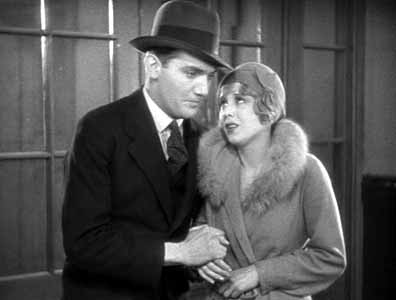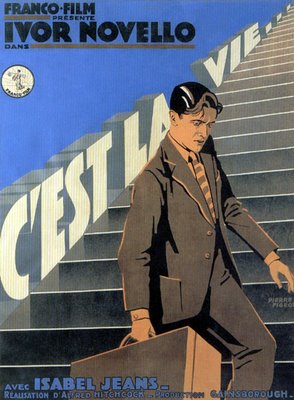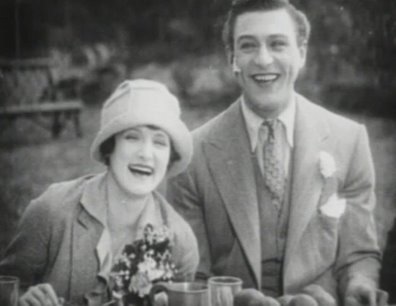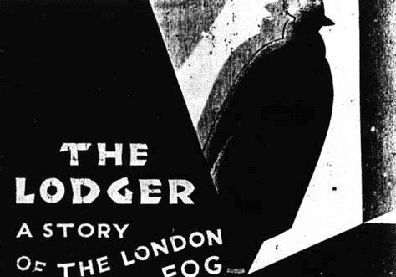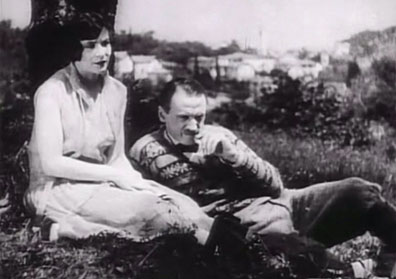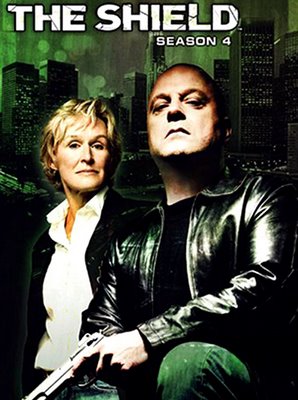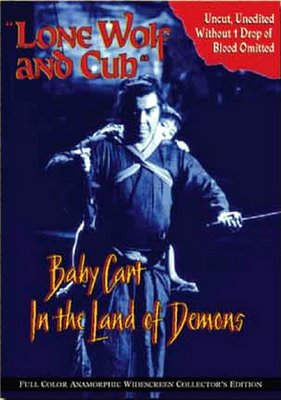Murder! (1930)
 Buddy, next time you convict someone to the death penalty, deliberate the case a little more in the JURY CHAMBER, rather than at home after... just a suggestion...
Buddy, next time you convict someone to the death penalty, deliberate the case a little more in the JURY CHAMBER, rather than at home after... just a suggestion...Genre: Mystery Thriller Drama (UK)
Starring: Herbert Marshall (Angel Face, Foreign Correspondent),
Directed By: Alfred Hitchcock (Torn Curtain, The Wrong Man)
Overview: A juror in a murder trial gets second thoughts and goes through the motions of reinvestigating the crime himself.
Acting: All too theatrical, and by that I mean not only fit for the stage but all too full of theatrics. Imagine choreography out of a musical, where everyone speaks in unison, (in stuffy BRITISH accents no less), and set up so everyone gets face time on the lens, even though there's a dozen people on the shot. When the film turns mystery it gets a lot more realistic, but my God is this outmoded.
Rating: 6
Cinematography: I was just going to rag on the iron maidens that were the cameras of the 30s but I do recall several great shots that have that touch of the Hitchcockian signature. The circus scenes have that stark German expressionist lighting he's famous for and there's even an up-close static shot of a trapeze artist's face as he swings, so the background sways back and forth, with him almost motionless. The best shot would have to be the one signifying the passage of time, the lengthening shadow of a gallows with a noose, as the young lady's time begins to run out!
Rating: 8
Script: Trudging through the sound kinks of this, the worst any film era had to offer in these dark days of the talkies, we have ambient sound of a grinding record player throughout the whole production, we have a scene with the radio so loud over the characters that we can't make out either the ethereal voice or those of the players. Murder! took a shot in the arm for the cause and though not great to start off with, it certainly has no lasting value in this day and age of THX. The novelty sure must have been some powerful thing, because wow, is it ever terrible to hear. Oh and the script was ripped right out of a play. If I wanted to see a play, I'd go a see a play. This medium is film, try and stay there huh?
Rating: 4
Plot: An entertaining enough story but there's no twists whatsoever, just a mystery to be solved, and somehow along the way I really didn't care enough to try and solve it. Rather, I preferred trying to figure out how large a puddle my stream of catatonic drool would get. Oh and it looks like a play, and even rips off the play within a play in Hamlet. Yawn. You basically told me how it would end half way through. Who does that?
Rating: 4
Mood: I read that Hitchcock liked this film because of innovations that weren't possible before sound. Apparently this is the first talkie that has the stream of consciousness narration, where we hear someone's thoughts. Woopie, how about making an actual good movie instead?
Rating: 4

*stream of consciousness voiceover in haughty accent* "I wonder what this leading lady would look liked dipped in chocolate.. mighty sweet I'd imagine, Haw haw"
Overall Rating: 52% (God, It Kills To Watch This!)
Aftertaste: The biggest lesson I learned while watching this one was this: Theater should stay in theater. I never quite realized how much I truly detest films that look like the plays they came from until now. I know I've mentioned it when mentioning such films as House Of Yes and Sleuth, but this cinches it. If ever I hear about a film that tries to stay as true to the theater as possible I'll make sure never to see it... and so odd that I love the Dogville trilogy so much...

